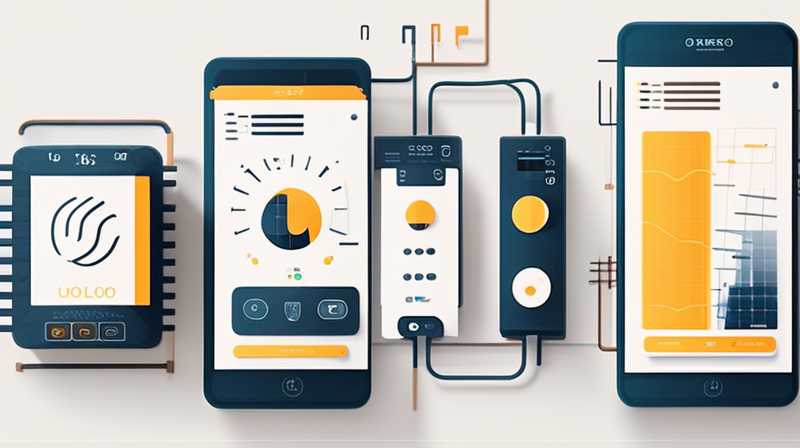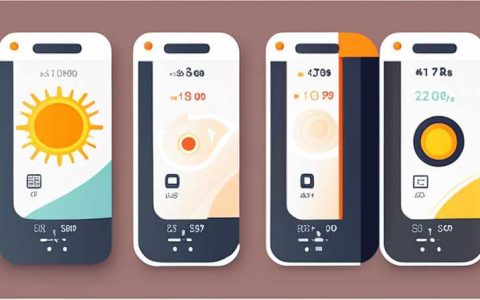
Which model of solar controller is good?
1. Several renowned models stand out as excellent choices for solar controllers: 1. Victron SmartSolar MPPT, 2. Renogy Voyager, 3. MidNite Solar Classic, 4. EPEVER Tracer Series. 2. Each model brings unique features tailored to meet varying user needs and preferences. For instance, the Victron SmartSolar MPPT is distinguished by its Bluetooth connectivity, allowing for effortless monitoring and adjustments through a mobile app. This feature provides a seamless user experience for both novices and seasoned users. 3. Specific to individual use cases, the ideal solar controller model may differ. Evaluating aspects such as efficiency, monitoring capabilities, and installation ease is essential when selecting a solar charge controller. An informed choice ultimately leads to optimizing the functionality of a solar power system, enhancing energy generation, and prolonging battery life. 4. Serious consideration of both budget and system requirements will also guide the selection process. As the market evolves, staying informed about emerging technologies and improvements in solar controller models adds value to the purchasing decision.
1. UNDERSTANDING SOLAR CONTROLLERS
Solar controllers, also known as charge controllers, play a crucial role in the management of solar power systems. Their primary function is to regulate the voltage and current coming from the solar panels to the battery. Without a solar controller, batteries can be easily overcharged or excessively discharged, resulting in a reduced lifespan or complete failure. This makes selecting a suitable model essential for efficiency and longevity.
Moreover, solar controllers are instrumental in preventing reverse current flow, where energy drains from the battery back to the solar panels at night. Several types of solar controllers exist, specifically Pulse Width Modulation (PWM) and Maximum Power Point Tracking (MPPT). Each type has distinct advantages, and understanding these can significantly influence the selection process.
2. TYPES OF SOLAR CONTROLLERS
PULSE WIDTH MODULATION (PWM)
PWM controllers are considered traditional voltage regulators. These devices function by regulating the battery’s charging voltage, reducing it to a specific level once the battery reaches the desired charge. This straightforward approach is highly efficient for small systems or when operating with sealed lead-acid batteries.
However, while PWM controllers can be effective, their efficiency decreases with larger systems or more complex setups. They typically operate at a lower charging efficiency compared to MPPT controllers, as they do not adjust the output to maximize power from the solar panels dynamically. The choice of a PWM controller might suit simpler applications, but understanding the limitations is essential when planning a larger or more power-intensive solar energy system.
MAXIMUM POWER POINT TRACKING (MPPT)
The MPPT technology has revolutionized solar energy management. MPPT controllers constantly adjust their input to harvest maximum energy from solar panels, regardless of varying light conditions or load requirements. This adaptive nature enables a significant increase in energy transfer efficiency compared to PWM systems.
MPPT controllers are particularly advantageous in larger systems or when utilizing high-voltage solar panels. By optimizing the power output, these controllers can enhance battery charging rates and improve overall energy yield. This adaptability makes them a popular choice for both residential and commercial solar installations.
3. COMPARATIVE ANALYSIS OF MODELS
VICRON SMARTSOLAR MPPT
The Victron SmartSolar MPPT has gained popularity due to numerous innovative features packed into a compact design. Among the most notable aspects is its Bluetooth connectivity. This functionality allows users to monitor and adjust their solar systems conveniently through a mobile application. Users can access vital data, including battery status, solar input, and historical data trends, enabling informed management of energy usage.
Additionally, this model provides a robust solution for ensuring optimal battery health. Through its diverse settings and programmable parameters, the Victron SmartSolar can be adjusted to match specific battery chemistry types, optimizing performance for lithium-ion, lead-acid, or gel batteries. The focus on adaptability contributes to the selection of this model for a broad array of solar applications, from small residential systems to larger commercial setups.
RENOGY VOYAGER
The Renogy Voyager controller is another formidable option, offering a user-friendly interface and affordability. The device supports multiple battery types and allows for customizable settings, enabling users to fine-tune the charging process according to their needs. This feature is particularly helpful for users with specific energy needs or those with hybrid systems incorporating different power sources.
Additionally, the Renogy Voyager is designed for ease of installation. Its compact size and straightforward operation make it an attractive choice for both new and experienced solar enthusiasts, particularly those looking to enhance their energy independence without excessive complexity. The ability to directly connect to various battery types ensures that even those with unique energy requirements can find a reliable solution in the Renogy Voyager.
4. MIDNITE SOLAR CLASSIC
The MidNite Solar Classic series is renowned for its capability to handle larger systems and its extensive features. This model includes integrated web monitoring and configuration capabilities, offering real-time data tracking for users interested in detailed performance metrics. Such features allow for easy monitoring of system efficiency and help in diagnosing any issues that might arise.
In addition, the MidNite Solar Classic offers the option of different configurations, accommodating a range of input voltages. This versatility makes it suitable for demanding applications, from off-grid cabins to larger commercial solar setups. Moreover, users benefit from compatibility with various battery technologies, allowing a high degree of flexibility without compromising efficiency.
5. EPEVER TRACER SERIES
The EPEVER Tracer Series of solar controllers stands out as an economical yet efficient choice for solar energy management. These controllers are known for their stability and reliability, making them a popular pick for outdoor applications and off-grid living situations. Its ability to automatically detect battery voltage ensures compatibility with various systems without requiring further configuration by the user.
The significant aspect of the EPEVER Tracer Series is its dynamic algorithm that optimizes battery charging dynamics based on diverse environmental conditions. This feature ensures efficient energy management under fluctuating sunlight and load demands. As a result, it has earned a reputation as a dependable option for customers looking for consistent performance in various scenarios.
6. KEY CONSIDERATIONS FOR SELECTION
When embarking on the selection journey for solar controllers, several criteria warrant careful evaluation. These aspects include budget, system size, user experience requirements, and specific performance expectations. Determining the main purpose of the solar energy system can simplify the decision-making process.
Budgeting is paramount; the pricing of solar controllers varies widely across models and brands. Therefore, understanding long-term savings in energy costs and potential increases in efficiency can justify initial expenditures. Likewise, evaluating power needs against controller specifications aids in ascertaining whether the model proposed sufficiently meets or exceeds energy demands.
User experience also plays a pivotal role in the process. For novices, controllers with intuitive interfaces and straightforward settings may enhance overall satisfaction. Conversely, experienced users may prioritize advanced features and customization options to maximize system performance.
7. CONCLUSIONS ON THE SELECTION PROCESS
In summary, choosing the right solar controller involves careful consideration of individual requirements and system specifications. 1. The blend of technology and adaptability among available models is essential for enhancing energy generation efficiency. 2. Each solar controller presents distinct features tailored to accommodate various user preferences. 3. Quality models such as Victron SmartSolar, Renogy Voyager, MidNite Solar Classic, and EPEVER Tracer Series all enhance the viability of solar energy systems. 4. In assessing features, budget constraints, and knowledge levels, users can find optimal solutions suited to their specific circumstances.
In the fast-evolving landscape of solar technology, remaining informed about advancements and user experiences can enhance decision accuracy. By conducting thorough research, potential buyers can ensure that their investment will yield maximum benefits. Such an informed approach assists greatly in selecting the most fitting solar controller, ultimately fostering a successful implementation of solar energy systems tailored to meet individual power needs.
THE ROLE OF SOLAR CONTROLLERS IN ENERGY EFFICIENCY
Understanding the vital role of solar controllers in energy efficiency offers insight into their importance within solar energy systems. By effectively managing the energy harvested from solar panels, these controllers facilitate optimal usage of the collected solar energy. Importantly, this efficiency directly translates into sustained battery health and reliability, underscoring their value in any solar installation.
The advanced technology integrated into modern solar controllers maximizes energy usage potential. By preventing overcharging incidents and maintaining proper energy management, these devices ensure that users get the most out of their systems, ultimately supporting sustainability goals and energy independence.
FAQs
WHAT IS A SOLAR CONTROLLER AND HOW DOES IT WORK?
A solar controller, also known as a solar charge controller, regulates the charging process of solar panels to batteries. Its primary function is to manage the voltage and current coming from the solar panels, ensuring that the battery charges optimally without the risk of overcharge or discharge. This is typically achieved through two established technologies: PWM and MPPT. PWM relies on straightforward voltage regulation, whereas MPPT actively adjusts input to maximize energy yield. This functionality is crucial for maintaining battery health and preventing energy losses, thereby enhancing overall energy system performance.
HOW DO I KNOW WHICH SOLAR CONTROLLER TO CHOOSE FOR MY SYSTEM?
Selecting the appropriate solar controller involves assessing multiple elements of your solar energy system. Key considerations include the total wattage of your solar panels, the type of battery technology employed, and your specific energy needs. Budget constraints also play a vital role in determining which models are viable options. Researching and comparing different models, such as those from Victron, Renogy, MidNite Solar, and EPEVER, can provide valuable insights into features that align with your requirements. Finally, compatibility with existing or planned components ensures the chosen controller integrates seamlessly within the overall energy system.
WHAT ARE THE BENEFITS OF USING AN MPPT CONTROLLER OVER A PWM CONTROLLER?
The primary advantages of utilizing an MPPT controller over a PWM controller center around efficiency and energy optimization. MPPT controllers can adapt to changing light conditions, maximizing power output from solar panels by adjusting the operational voltage to suit the existing load. This adaptive capability allows users to capture a greater percentage of the energy produced, especially in conditions where sunlight is inconsistent. In contrast, the PWM controller operates at a fixed voltage, which limits its efficiency in dynamic situations. Therefore, MPPT controllers are regarded as superior for larger systems or those requiring a higher level of performance, making them an excellent long-term investment within solar energy setups.
Original article by NenPower, If reposted, please credit the source: https://nenpower.com/blog/which-model-of-solar-controller-is-good/











